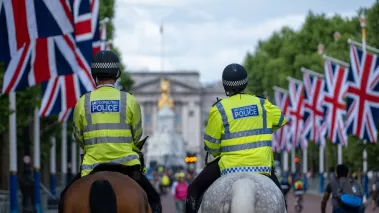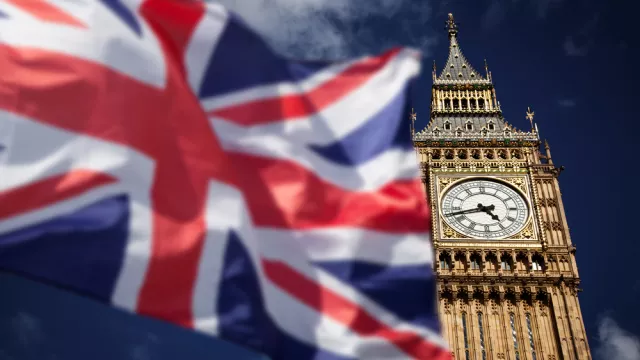Table of Contents
UK police can still log ‘non-crime hate incidents’ even after reforms

Watcharisma / Shutterstock.com
In Part 1 of this series, I highlighted why the British police are misguided in logging so-called “non-crime hate incidents,” or NCHIs. In this second essay, I consider the events that led to the newly-proposed guidelines that offer “special regard” to free speech. I then explain why these revisions are far from sufficient to protect freedom of expression.
The case of Harry Miller
On Jan. 23, 2019, Harry Miller, a former police officer who went on to run a small company, was informed by his managing director that a Humberside Police Department officer had visited the office. The officer was looking for Miller, but Miller was away.
After hearing this message, Miller called the station. The officer told Miller that about 30 of his tweets had been reported to police as “transphobic” and that police had recorded the accusation. According to later court reports, the officer said Miller “had not committed a crime but told him if his behaviour escalated then it may become criminal, and the police would need to deal with that appropriately. He strongly advised Mr. Miller to cease tweeting gender critical messages.”
Miller filed a complaint with the Humberside Police Department. They dismissed it. So Miller took the police to court.
The judge found that police actions “led [Miller], reasonably, to believe that he was being warned not to exercise his right to freedom of expression about transgender issues on pain of potential criminal prosecution.” However, the judge found no issue with the overall practice of reporting non-crime hate incidents, or NCHIs. He believed the “mere recording” of an NCHI was “too remote from any consequences … and had no real consequence” for the accused.
The British police’s practice would almost certainly fail an American strict scrutiny test, since keeping a database of alleged “hate speech” incidents is a sweeping burden on speech and clearly not the “least restrictive means” of preventing hate crimes
Miller appealed the decision, and the appellate judge disagreed with the ruling of the lower court.
“I am unable to agree with [the judge’s] conclusions that the impugned provisions of the Guidance do not constitute an interference with Mr. Miller’s right to freedom of expression,” wrote Dame Victoria Sharp, the appellate judge. “In short, the recording of non-crime hate incidents is plainly an interference with freedom of expression and knowledge that such matters are being recorded and stored in a police database is likely to have a serious ‘chilling effect’ on public debate.”
Still, Sharp insisted that “perception-based recording [such as NCHIs] has a legitimate aim (or series of aims) linked to the prevention of disorder or crime and the protection of the rights of others and this aim is sufficiently important to justify interfering with the fundamental right to freedom of expression.”
Essentially, Sharp concluded that the recording of NCHIs is a legitimate infringement on freedom of expression, but continued that the 2014 guidance does not “go very far, or nearly far enough to address the chilling effect of perception-based recording.” She writes, “Perception-based recording of non-crime incidents is [not] per se unlawful, but . . . some additional safeguards should be put in place so that the incursion into freedom of expression is no more than is strictly necessary.”
This ruling displays how sharply British law diverges from American law. Courts in the United States employ a “strict scrutiny” test when assessing restrictions on speech. That test requires that, among other things, the speech restriction is “narrowly tailored” and uses the “least restrictive means” possible.
To give an example, the Supreme Court of the United States ruled that a federal regulation that barred television providers from airing “sexually-oriented programming” during the daytime was not the “least restrictive means” of preventing children from viewing such content. Rather, a “lockbox” feature, wherein households could opt out completely from Playboy programming, offered a “less restrictive” alternative, since it would burden speech less than would an outright daytime ban.
The British police’s practice would almost certainly fail an American strict scrutiny test, since keeping a database of alleged “hate speech” incidents is a sweeping burden on speech and clearly not the “least restrictive means” of preventing hate crimes, considering there is no evidence that tracking NCHIs even prevents crime.
Reform to NCHI recording
Last month, U.K. Home Secretary Suella Braverman announced a revised set of guidelines for police when reporting NCHIs that are pending parliamentary approval. For the first time, the guidelines explicitly mentioned the importance of free speech. “I have been deeply concerned about reports of the police wrongly getting involved in lawful debate in this country,” she said. “We have been clear that in recording so-called non-crime hate incidents, officers must always have freedom of expression at the forefront of their minds.”
The new guidelines highlight the importance of free speech and outline the need for objective standards in logging NCHIs. “Offending someone is not, in and of itself, enough to warrant the recording of an NCHI involving personal data — the perception of the complainant alone (including perceptions of offensiveness) is not enough to result in an NCHI including personal data being recorded,” they read.
Still, the mere fact that the police will continue to track NCHIs should worry proponents of civil liberties.
“Freedom of expression is a qualified right,” reads the guidelines, “which means that it can be restricted for certain purposes to the extent necessary in a democratic society, including for the prevention of disorder or crime.”
Equality is, without question, a worthwhile goal. But a government program that believes that goal is furthered by logging inherently subjective “hate speech” is horribly misguided, especially lacking evidence that this practice promotes equality.
It is worth emphasizing, once again, however, that police in the U.K. have provided no evidence whatsoever that recording NCHIs prevents crime.
Moreover, despite the fact that new guidelines emphasize “objectivity” and the use of “judgment and common sense,” the entire concept of “hate speech” is terribly subjective.
It’s hard to imagine any broad consensus about what counts as hate speech. And the new guidelines don’t even attempt to propose any formal framework for judging what is and isn’t “hateful” — leaving Harry Miller and others unsure whether their tweets could be considered “objectively” hateful, thereby effectively chilling their speech.

UK police’s speech-chilling practice of tracking ‘non-crime hate incidents’
News
With complete disregard for free speech, since 2014 U.K. police have kept a database of people whose speech is perceived as ‘motivated by a hostility’ to race, gender, or other protected categories.
The new guidelines foolishly treat police officers’ subjective judgements — which are shaped by their own personal biases and predispositions — as objective. They attempt to justify giving enormous power to police to define whether speech falls within the acceptable bounds of public discourse, a power that has historically been used against the very people the speech restrictions aim to protect.
This invasion of civil liberties is unacceptable, especially in a modern, egalitarian state. Equality is, without question, a worthwhile goal. But a government program that believes that goal is furthered by logging inherently subjective “hate speech” is horribly misguided, especially lacking evidence that this practice promotes equality.
In fact, the opposite may be true. History suggests that restricting “hate speech” may increase prejudice. For example, the Weimar Republic — the democratic government of Germany prior to World War II — frequently censored leading Nazi figures, including Hitler himself, which only fueled sympathy for the Nazis in the press.
If the United Kingdom hopes to safeguard the right to freedom of expression and, moreover, if it hopes to promote equality, it must eliminate the unfounded practice of recording NCHIs.
Recent Articles
FIRE’s award-winning Newsdesk covers the free speech news you need to stay informed.

The FCC's show trial against CBS is a political power play

UPDATE: Another federal appeals court backs academic free speech for public employees

Feds to Columbia: ‘You want $400 million in contracts back? Do this (or else)’


